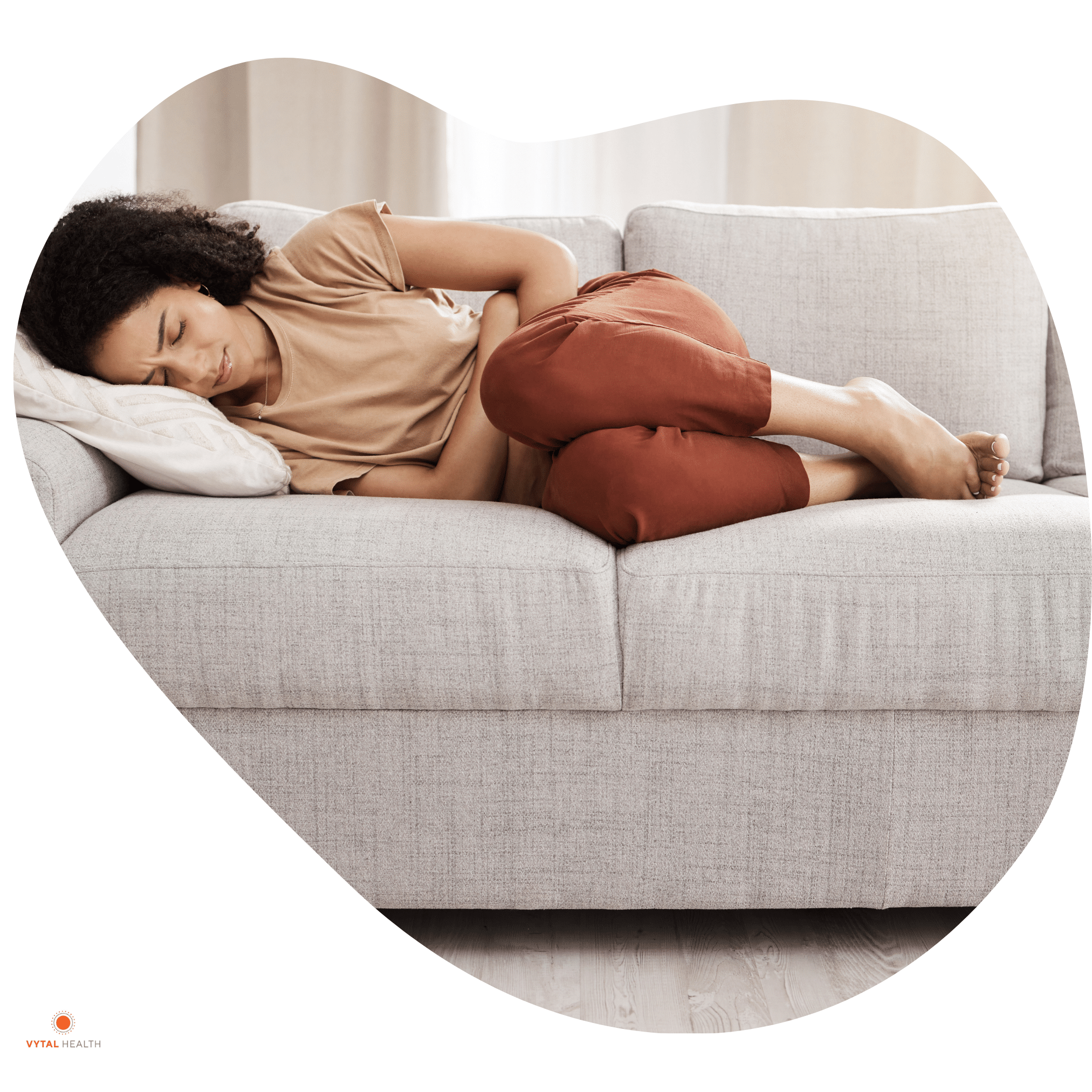Functional Guide to Endometriosis.
Endometriosis—say that three times fast! It’s a common but often-misunderstood condition where tissue similar to the uterine lining sets up camp outside the uterus, causing everything from pain to fertility struggles. Affecting roughly 1 in 10 women, it can be a complex, chronic companion, but here’s the good news: a functional, integrative approach can help uncover root causes and put you back in the driver’s seat of your health.
Typical Signs and Symptoms of Endometriosis
Endometriosis is most famous for its painful symptoms, especially during your period. Common signs include intense cramps that go way beyond “normal” menstrual discomfort, chronic lower back pain, and pain during or after sex. Digestive upset—think diarrhea, constipation, and bloating (the dreaded “endo belly”)—often join the mix, especially around menstruation. And it doesn’t stop there; painful urination or bowel movements, especially during your period, are also common. These symptoms can sometimes overlap with other conditions, making diagnosis a journey in itself.
Unusual Signs and Symptoms of Endometriosis
Sure, we know endometriosis can bring some serious pelvic pain, but it’s not *just* a bad period. It can also sneak up with surprises like nausea, leg pain, chronic fatigue, and even mood swings. Plus, since symptoms may peak with your cycle, it’s often confused with other conditions, which makes diagnosing it a tricky game of symptom bingo.
Theories on Causes and Root Factors
The big question: why does endometriosis happen in the first place? Here are a few theories:
– Genetics and Epigenetics: Yep, you might be able to thank your family tree, along with environmental influences that can activate certain genes.
– Hormonal Imbalances: Estrogen dominance and low progesterone levels are like a growth serum for endometrial tissue.
– Inflammation and Immune Dysregulation: Chronic inflammation and a sluggish immune system may struggle to keep those endometrial cells in check.
– Environmental Toxins: Exposure to chemicals like BPA can lead to hormonal chaos and trigger immune responses.
– Gut Health and the Microbiome: A healthy gut helps regulate inflammation and immunity, making it an important (and sometimes overlooked) ally in managing endometriosis.
Associated Diagnoses
Endometriosis loves a crowded house—it often overlaps with other conditions, making it all the more complicated.
– PCOS (Polycystic Ovary Syndrome): Similar hormonal imbalances mean these two often show up together.
– Autoimmune Conditions: Endometriosis and autoimmune issues (think Hashimoto’s) tend to be BFFs, thanks to similar immune dysfunctions.
–IBS (Irritable Bowel Syndrome): GI symptoms are a classic, and since these mimic IBS, it’s easy to misdiagnose.
– Chronic Fatigue Syndrome and Fibromyalgia: These conditions bring fatigue and pain that can either mask or mimic endometriosis.
Surgical and Non-Surgical treatment options
Surgical Options:
Surgery for endometriosis typically involves laparoscopy, where a surgeon locates and removes or “excises” endometrial-like tissue outside the uterus. Excision surgery is considered the gold standard because it aims to fully remove endometriosis lesions rather than just burning them away, which can reduce symptoms and improve fertility. However, surgery isn’t a guaranteed fix—endometriosis has a high recurrence rate, with symptoms returning in up to 50% of cases within five years. Finding a specialist surgeon who’s trained in excision is crucial, as they have the skills to locate hidden lesions and effectively remove them. A knowledgeable surgeon can make all the difference, not only for symptom relief but also for reducing the likelihood of repeated surgeries. Surgery alone, however, often requires a holistic follow-up plan to address root causes and help manage symptoms long-term.
Non-Surgical and Holistic Approaches:
– Anti-Inflammatory Diet: Load up on omega-3s, turmeric, and whole foods to bring down inflammation levels.
– Hormonal Support: Herbs like Vitex, Maca, and adaptogens help balance out estrogen and cortisol.
– Gut Health and Detoxification: Probiotics, liver-supporting herbs like milk thistle, and a gut-friendly diet make for a happy microbiome.
– Immune Support: Curcumin and low-dose naltrexone (LDN) help regulate inflammation and balance the immune system.
– Mind-Body Connection: Meditation, mindfulness, and exercises like yoga can help tune the nervous system down from pain amplification.
– Lifestyle Modifications: Avoid endocrine disruptors, prioritize sleep, and lower stress levels with activities that bring you joy (whatever those may be!).
This all sounds familiar, what next?
Endometriosis can be a complex and challenging condition, but you don’t have to tackle it alone. At our clinic, our naturopath, Dr Alicia McCubbins, specializes in hormonal health and understands the intricacies of endometriosis on a deep level. She’s here to help you unravel the hormone imbalances, immune triggers, and lifestyle factors that contribute to your unique symptoms. If imaging is needed, we can refer you to the right resources, but our primary focus is helping you find natural relief and long-term wellness. If you’re curious to learn more, we offer a free 15-minute discovery call—a relaxed, no-pressure chat to see if our approach feels like a good fit for you.


